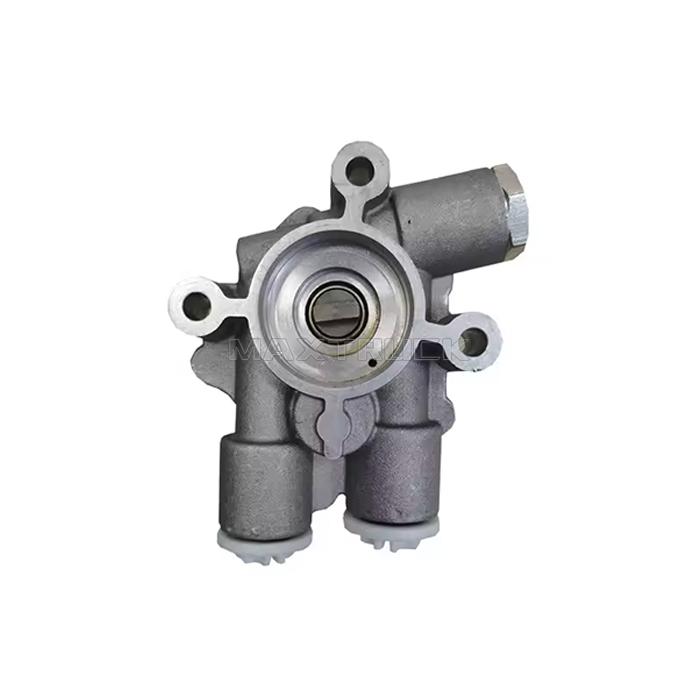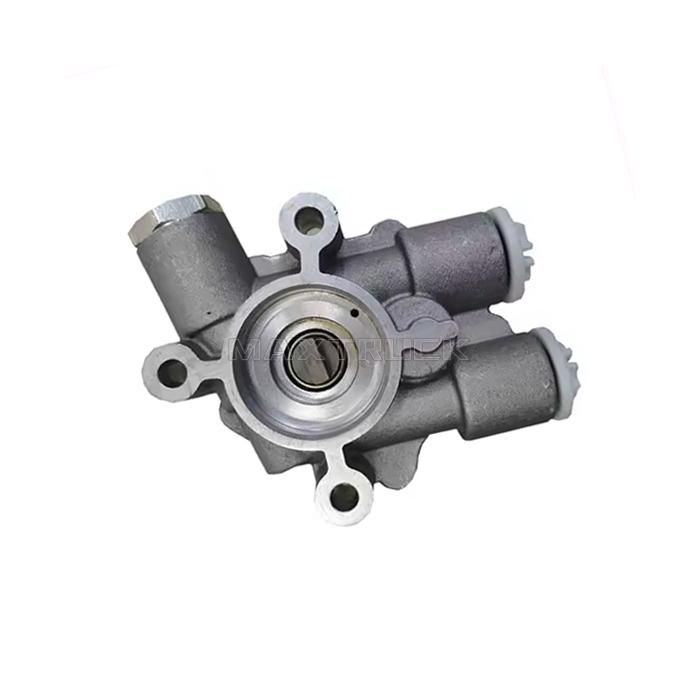Industry
How Fuel Pumps Work in Diesel Trucks A Complete Guide
Diesel trucks are the backbone of industries such as logistics, construction, and agriculture. Their robust engines, designed for heavy-duty operations, rely on an efficient fuel delivery system to perform optimally. At the heart of this system lies the diesel fuel pump, an essential component that ensures the engine receives the right amount of fuel at the right pressure. In this comprehensive guide, MAXTRUCK GROUP LIMITED (MAXTRUCK) delves deep into the workings of diesel truck fuel pumps, their types, and their importance in the trucking industry.
The Role of Fuel Pumps in Diesel Engines
The diesel engine operates on the principle of compression ignition, where air is compressed to high pressures before fuel is injected into the combustion chamber. For this process to work seamlessly, the fuel pump plays a critical role in delivering diesel from the fuel tank to the engine. Without an efficient fuel pump, the engine cannot achieve the precise pressure and timing required for smooth operation.

Fuel pumps in diesel trucks are designed to handle high pressures, as diesel engines typically operate at pressures much higher than gasoline engines. This ensures efficient atomization of the diesel fuel, which is crucial for proper combustion and power generation.
Key Functions of Diesel Truck Fuel Pumps
Diesel truck fuel pumps perform several essential functions, including:
- Fuel Delivery: Transporting diesel from the fuel tank to the engine.
- Pressure Regulation: Maintaining the appropriate pressure for fuel injection.
- Fuel Metering: Ensuring the correct amount of fuel is delivered to the engine based on its operational requirements.
- Contaminant Filtration: Preventing impurities from entering the engine by working in tandem with fuel filters.
Types of Diesel Fuel Pumps
Diesel trucks use different types of fuel pumps, each designed for specific engine requirements. Below are the most common types:
1. Mechanical Fuel Pumps
Mechanical fuel pumps are typically found in older diesel engines. These pumps are driven by the engine’s camshaft or crankshaft and use a diaphragm to create suction and deliver fuel to the engine. While they are reliable and straightforward, mechanical pumps are less efficient compared to modern alternatives.
2. Electric Fuel Pumps
Electric fuel pumps are commonly used in modern diesel trucks. These pumps are powered by the vehicle’s electrical system and offer greater precision in fuel delivery. Electric pumps can maintain consistent fuel pressure, making them ideal for high-performance diesel engines.
3. Common Rail Fuel Pumps
The common rail fuel pump is a key component of the common rail direct injection (CRDI) system, a technology widely used in modern diesel engines. This pump delivers fuel to a common rail, which then supplies high-pressure fuel to each injector. The result is improved fuel efficiency, reduced emissions, and enhanced engine performance.
4. Rotary and Inline Pumps
Rotary and inline pumps are high-pressure fuel pumps used in heavy-duty diesel trucks. These pumps are known for their durability and ability to handle the extreme demands of industrial applications. Rotary pumps are compact and efficient, while inline pumps offer precise fuel delivery for larger engines.
How Diesel Fuel Pumps Work
The operation of a diesel fuel pump can be broken down into several stages:
1. Fuel Suction
Fuel is drawn from the tank by the pump. This process is initiated either mechanically or electrically, depending on the type of pump. The fuel passes through a pre-filter to remove larger contaminants.
2. Pressure Generation
Once the fuel reaches the pump, it is pressurized to the required level. High-pressure pumps, such as those in common rail systems, can generate pressures exceeding 30,000 psi. This high pressure is essential for efficient fuel atomization and combustion.
3. Fuel Delivery
The pressurized fuel is delivered to the engine’s injectors. In common rail systems, the fuel is stored in a rail before being distributed to the injectors. The injectors then spray the fuel into the combustion chamber at precise intervals.
4. Pressure Regulation
To ensure consistent performance, the fuel pump includes a pressure regulator. This component adjusts the fuel pressure based on the engine’s operational needs, preventing over-pressurization and ensuring optimal combustion.
Challenges and Maintenance of Diesel Fuel Pumps
While diesel fuel pumps are designed for durability, they are not immune to wear and tear. Common challenges include:
- Contamination: Dirt, water, and other impurities can damage the pump and reduce its efficiency.
- Wear and Tear: Over time, the pump’s internal components can wear out, leading to reduced performance.
- Fuel Quality: Low-quality diesel can cause deposits to form within the pump, affecting its operation.

To mitigate these challenges, MAXTRUCK recommends regular maintenance, including:
- Replacing fuel filters at recommended intervals.
- Using high-quality diesel fuel.
- Inspecting the fuel pump for signs of wear or damage.
- Ensuring the fuel tank is clean and free of contaminants.
Industry Insights: The Evolution of Diesel Fuel Pumps
The diesel truck industry has witnessed significant advancements in fuel pump technology over the years. Modern fuel pumps are designed to meet stringent emission standards while delivering superior performance. Innovations such as electronic control units (ECUs) and advanced materials have enhanced the reliability and efficiency of fuel pumps.
At MAXTRUCK, we understand the importance of staying ahead in this evolving industry. Our team is committed to providing top-quality components and services to ensure the longevity and performance of diesel trucks. By leveraging the latest technologies, we help our clients achieve operational excellence and reduce their environmental footprint.
Conclusion
Diesel fuel pumps are the lifeblood of diesel engines, playing a crucial role in fuel delivery, pressure regulation, and overall engine performance. Understanding how these pumps work and maintaining them properly is essential for the longevity and efficiency of diesel trucks.
At MAXTRUCK GROUP LIMITED, we are dedicated to empowering our clients with industry-leading knowledge and solutions. Whether you’re looking for high-quality fuel pumps, maintenance tips, or expert advice, MAXTRUCK is your trusted partner in the diesel truck industry. Contact us today to learn more about our products and services.
By investing in the right fuel pump technology and adhering to best practices, you can ensure the optimal performance of your diesel trucks, reduce downtime, and maximize your return on investment. Trust MAXTRUCK to keep your fleet running smoothly and efficiently for years to come.

